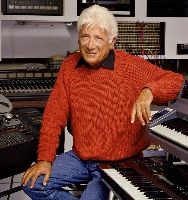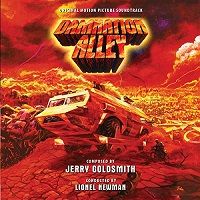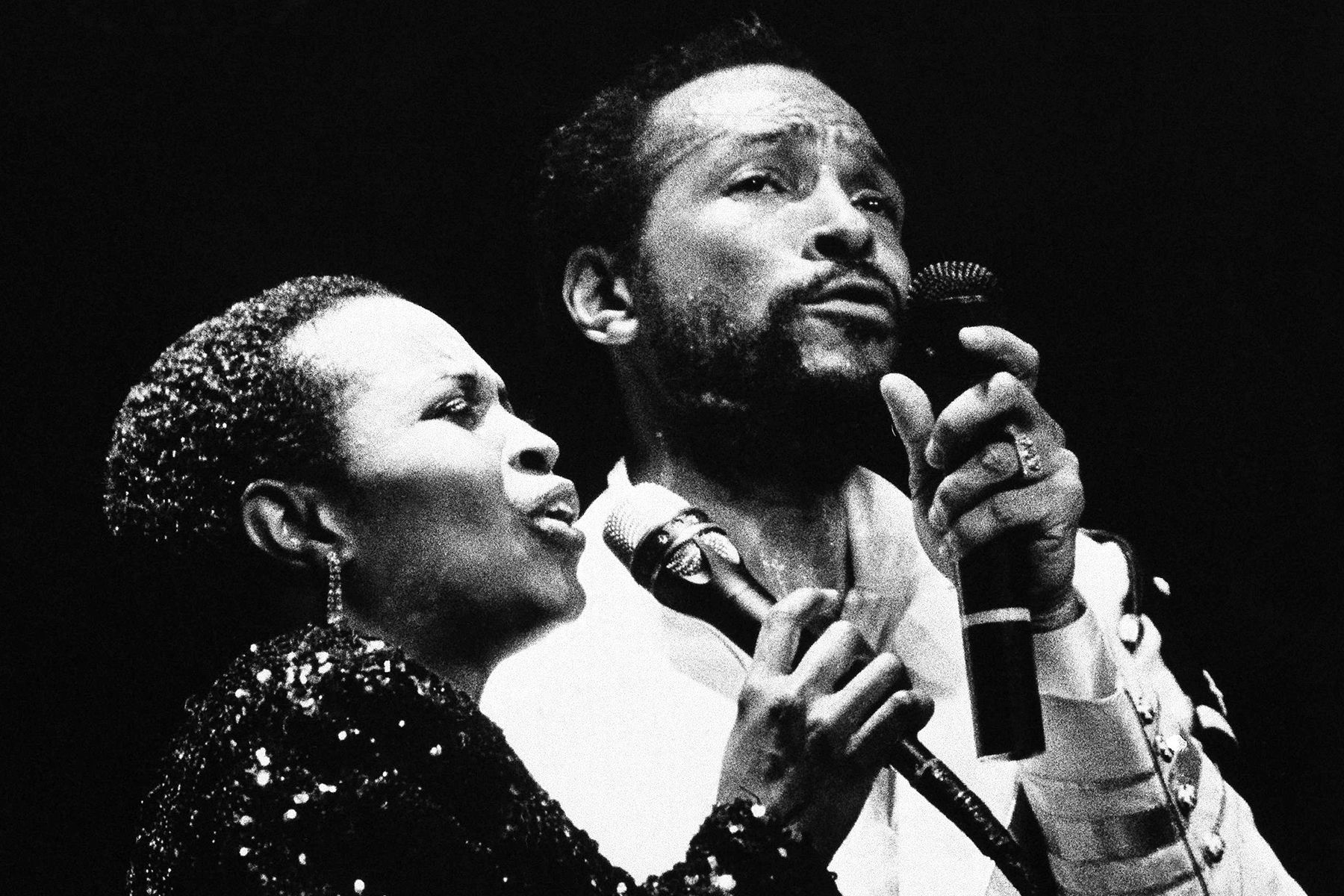Damnation Alley soundtrack
By James Southall Mon January 8, 2018
- Composed by Jerry Goldsmith
- Intrada / 2017 / 34m
It had been meant to end up being Fox’s big technology fiction release of 1977: the post-apocalyptic Damnation Alley, where a small band of survivors must traverse the width of The united states to get sanctuary, battling mutant bugs and deranged human beings on their method, in the aftermath of nuclear battle. But along emerged you-know-what, and suddenly those mutant bugs didn’t appear quite as impressive. It had been eventually released to minimum acclaim past due in the entire year and developed a popularity as a turkey, though searching back from the distance it appears eminently watchable, if silly.
The fantastic Jerry Goldsmith will make most issues watchable. This is his third and last movie with director Jack Smight after The Illustrated Man and The Traveling Executioner – this type of disparate band of movies and scores. For a long time, the rating was the things of legend – idea for a long period to be dropped, it was “nearly” discovered in the first 2000s, however the tapes had been frustratingly lacking the synth overdubs therefore vital that you the music. The elements of the rating that didn’t rely so seriously on synths were launched (minus the greatest sound high quality) within Varèse Sarabande’s mammoth Goldsmith at Fox container occur 2003 and now, ten years . 5 later, the score lastly gets a complete release, with the entire Mike Matessino remastering therapy – “nearly”! The synth overdubs remain lost – so rather Intrada commissioned Leigh Philips to reconstruct them – and this is actually the fruit of everybody’s labours.

1977 furthermore saw the launch of Twilight’s Final Gleaming and Capricorn One, and the ones acquainted with those Goldsmith ratings will know what to anticipate. Even by his specifications, the past due 1970s were a successful time, with exceptional songs coming at every switch – these motion thrillers produced some very nice materials. The echoing, tense small motif which opens Damnation Alley is in fact very closely linked to a motif in Twilight’s Final Gleaming, although composer will take it off in various directions in this rating. The main title item includes that motif with the even more expansive main style of the rating – it’s an unbelievable item, pulsatingly exciting but departing no doubt regarding the tension forward.
Pulsating, abrasive electronics open “ANOTHER Planet” – sparse, Stravinsky-like orchestral accompaniment with some intriguing dissonant textures shortly join in and provide a severe soundscape. “Valley of Death” introduces actions to the rating – and there’s no shortage of it. Fast-paced, breathlessly thrilling, it’s vintage action songs from the composer who achieved it better than other people. The brass creating is so complicated – I really like how Goldsmith always attempted to smarten these movies up, nevertheless dumb they may have already been. In “The Landmasters” (called for the vehicle where our heroes are journeying – the facet of the film that actually attracted probably the most praise) factors are initially a bit more low-key, however the orchestra swells up right into a wonderful crescendo of the primary concept.
A short (hardly recognisable) burst of the primary theme opens “The Voyage Starts”, then following a short interlude of expansive activity (not really dissimilar to a passage in the composer’s Breakout) the primary theme switches into full-on action setting, exciting and rhythmic, flawlessly expressing forward motion. Even more motion follows in “Signals”, all of the familiar ingredients thrown in to the pot – the constant motivic growth, the martial percussion, furious strings (properly, except violins – there aren’t any any place in the rating) – and right here, a fair quantity of heavy-lifting from Philips’s synths. A far more expansive consider on the main style comes in the initial 1 / 2 of “The Desert”, before some wonderful pastoral material shows up afterwards.
There’s an excellent estimate in the album booklet about “Don’t Bug Me”, which underscores an integral part of the movie where in fact the insect special results aren’t quite as exclusive as might have been designed – therefore Goldsmith said he sensed the necessity to “compose one of is own wildest action cues actually to distract audiences from the consequences.” And he do – it’s excellent, classic Goldsmith. There’s more fantastic actions music in the short “A FRESH Passenger” before among my preferred tracks, “Refuelling Stop”. Pretty late in the rating, the composer introduces a fresh concept, an expansive one, getting real optimism into have fun with in the songs for the very first time. It’s just wonderful.
After some dark materials that opens the cue, the style is usually reprised in “THE INCORRECT Order”; after that in “A Storm Brewing” there’s even more harsh, dissonant songs – it sounds similar to it might result from a horror rating. But lastly, there’s the discharge, in “A FRESH Day” – it gradually builds, shimmering, just like the sunlight coming up on the horizon. Also it’s so stunning – Goldsmith had been so amazingly good. Just he’d have written a bit such as this for a movie like Damnation Alley. Lastly, there’s a pleasant arrangement of the primary theme for the finish credits.
Compliment is because of everyone who done this album – makers Nick Redman and Matessino, executive producers Douglass Phony and Roger Feigelson, liner information writer Julie Kirgo – but I must provide Leigh Philips a particular mention. He wowed individuals a couple of years ago along with his reconstruction (which includes synths) of the composer’s The Salamander for the Tadlow/Prometheus re-documenting; arguably what he’s done here’s even more amazing, reconstructing the vintage noises, performing them and having them integrate therefore seamlessly into the authentic orchestral tracks documented forty years earlier. Also it is really seamless: I’d do not have identified they weren’t the initial recordings.
The score may just be around 30 minutes long, but there’s so much loaded in – and Goldsmith doesn’t waste an email. He actually did write remarkable movie music through all intervals of his profession, but there’s something concerning the time period in the late 1970s and early 80s that’s somehow extra particular. The composer’s enthusiasts should celebrate this launch – a primary score from his nearly all incredible time period, thought lost, today found. The good is a big intensify from the excerpts noticed on the 2003 discharge, but admittedly remains definately not perfect – truthfully though, that’s the final thing you’ll be considering when luxuriating in the genius of Jerry Goldsmith.




Recent Comments